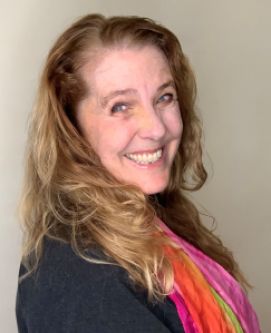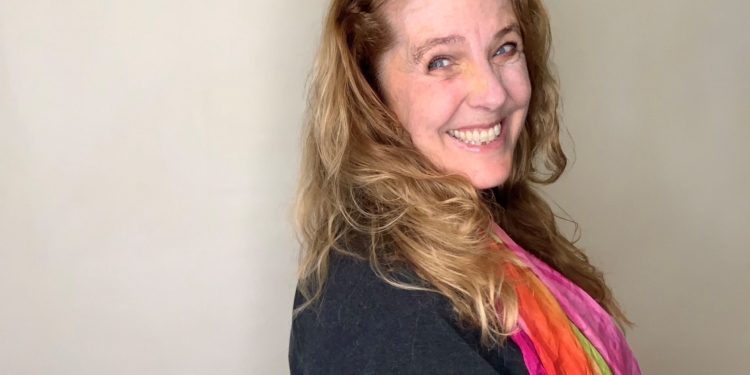
How might your life change if you recognized that observing might be the most powerful thing you could do? We acknowledge experts based on what and how they observe, yet we seldom recognize the full power of observation.
Much like breathing, observing is something we often take for granted, yet cannot live without. We can only live for a matter of minutes without breathing–and in certain situations, the same can be said of observation. We depend on observation in order to make choices about the food we eat as well as every choice we make.
How we do this deceptively simple thing has everything to do with the level of consciousness we experience.
Role of the Observer
Tremendous significance has been ascribed to the act of observation and the role of the Observer, in the realm of quantum physics. The definition of “observation” within quantum physics is:
“an act by which one finds some information–the value of a physical observable (quantity).”
This very specific definition is focused on the relationship between observation and information, with awareness that the choice of how and where and what is being chosen for observation.
The presence or absence of Observers, as well as the nature of what is being observed have an impact on the observations being made. This has been experimentally demonstrated in the double slit experiment, which is recognized as the most elegant scientific experiment. Observation in quantum physics experiments has been associated with such ideas as “the observer effect,” whereby what is observed in a quantum double slit experiment appears to be influenced by the type and location of an observer or observational device.
While it may seem obvious that observation involves some form of consciousness, there is a surprising lack of consensus agreement about what that entails.
Observation and Consciousness
 One of my favorite ways to contemplate the connection between observation and consciousness is by considering some of the insights of Wilhelm Gottfried Leibniz, a great philosopher and one of the inventors of Calculus.
One of my favorite ways to contemplate the connection between observation and consciousness is by considering some of the insights of Wilhelm Gottfried Leibniz, a great philosopher and one of the inventors of Calculus.
Leibniz pointed out that a key quality of consciousness is that it necessarily involves both a first-order primary perception, and a second-order awareness of the first level perception. Our ability to recognize, for example, that when we feel something touch our nose, and we open our eyes to see what it is, we can realize that the sensations we perceive and the visual input can provide us with information regarding what is currently happening. If we feel a sense of being threatened, we can respond protectively; if we feel a sense of curiosity, we can respond inquisitively.
Leibniz recognized the importance of being an observer of one's own first-order perceptions–with awareness that this very ability to acknowledge something we so often take for granted can actually be viewed as the foundation of consciousness itself. We begin to wonder if artificial intelligence asks questions, will nature answer? with hopefully an emphasis on how good it can get when we begin collaborations with A.I.
The Power of Observation
Most of us are familiar with the expression, “beauty is in the eye of the beholder,” with awareness that each person's aesthetics can be quite individual and unique. What is not so well known is that almost all desirable qualities can be said to be “in the eye of the beholder,” and we tend to see much more of whatever we focus our attention upon. We can become inadvertent experts on what we focus our attention on, regardless whether it's something we'd actually enjoy experiencing, so we would be well advised to focus our attention on sustainable positive values such as: peace, balance, harmony, joy, and love.
Alignment of our own levels of observation is an inside job, meaning it starts by recognizing areas of ideological inflammation, where we cannot tolerate certain ‘triggers' or stimulation–yet thrives by focusing primarily on our overall health as incorporating a much larger sense of self than we typically claim. When each of us is bigger than any personal or environmental insult, we need not fall into knee-jerk reactionary and possibly overly dramatic responses, but rather can relax into knowing we are intrinsically safe, loved, and accepted with love and kindness just as we are. This kind of re-centering is an inside job, and must start by loving all parts of ourselves. We thus can rise above old patterns and tendencies to fall into victim consciousness, patterns of us-and-them thinking, or chronic anxiety regarding some large problem that we must help resolve. All such drama can truly be risen above, when we claim a sense of higher self awareness that is our true birthright.
We can rise above most any circumstances, through the power of observation. And of course one of my favorite ways to experience the power of observation, is to feel how much we truly need to know how good can it get?
. . . . . . . . . . . . . . .
You can watch the companion video to this blog here:
___________________________
 Cynthia Sue Larson is the best-selling author of six books, including Quantum Jumps. Cynthia has a degree in physics from UC Berkeley, an MBA degree, a Doctor of Divinity, and a second degree black belt in Kuk Sool Won. Cynthia is the founder of RealityShifters, and is president of the International Mandela Effect Conference. Cynthia hosts “Living the Quantum Dream” on the DreamVisions7 radio network, and has been featured in numerous shows including Gaia, the History Channel, Coast to Coast AM, One World with Deepak Chopra, and BBC. Cynthia reminds us to ask in every situation, “How good can it get?” Subscribe to her free monthly ezine at:
Cynthia Sue Larson is the best-selling author of six books, including Quantum Jumps. Cynthia has a degree in physics from UC Berkeley, an MBA degree, a Doctor of Divinity, and a second degree black belt in Kuk Sool Won. Cynthia is the founder of RealityShifters, and is president of the International Mandela Effect Conference. Cynthia hosts “Living the Quantum Dream” on the DreamVisions7 radio network, and has been featured in numerous shows including Gaia, the History Channel, Coast to Coast AM, One World with Deepak Chopra, and BBC. Cynthia reminds us to ask in every situation, “How good can it get?” Subscribe to her free monthly ezine at:














